Secondary education in Toronto, Ontario 2026
- Secondary Schools in Toronto: A Guide for International Students
- Key Features of Secondary Schools in Toronto
- Top 5 Secondary Schools in Toronto for International Students
- Enrollment Requirements to Secondary Schools for International Students
- Cost and Fees in Toronto's Secondary Schools
- Teaching methods
- Private schools
- Literature and references
This content was developed and approved with active participation of Anna Parkhomenko.
In the process of preparing the material, we referenced the following sources:
- https://en.wikipedia.org/wiki/Education_in_Toronto
- https://thecanadaguide.com/basics/education/
-
 from 43600.00 $CAD / year
from 43600.00 $CAD / year -
 from 31000.00 $CAD / year
from 31000.00 $CAD / year -
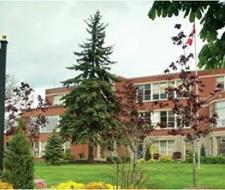 from 22335.00 $CAD / year
from 22335.00 $CAD / year -
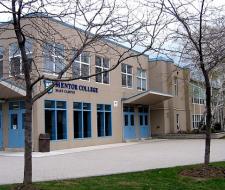 from 23750.00 $CAD / year
from 23750.00 $CAD / year -
 from 18000.00 $CAD / year
from 18000.00 $CAD / year -
 from 22800.00 $CAD / year
from 22800.00 $CAD / year -
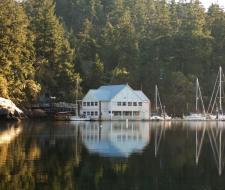
-
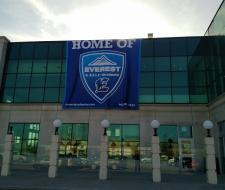 from 31595.00 $CAD / year
from 31595.00 $CAD / year -
 from 14900.00 $CAD / 40 weeks
from 14900.00 $CAD / 40 weeks -
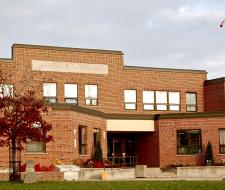 from 19000.00 $CAD / 2 semesters
from 19000.00 $CAD / 2 semesters
Canada has long been on the list of the most popular countries for foreign students along with America, Britain and Switzerland, and secondary education in Toronto is no exception. Toronto is one of the most comfortable cities in Canada. Toronto is home to Young Street, the longest street in the world, a huge number of museums, and hosts many music festivals and cultural events. Also there are hundreds of educational institutions located here, thanks to which Toronto can be confidently called a city of youth — Toronto secondary schools will always be comfortable, efficient, in demand and prestigious.
Toronto is universally recognized as the most prosperous and safe Canadian city, this information is confirmed by the annual rating prepared by The Economist magazine. Toronto ranks fourth in the ranking in relation to the aggregated indicator of quality of life. The following are the two main reasons for choosing elite schools in Toronto to receive a high-quality secondary education:
- Application of modern teaching methods
- Effective pre-university preparation.
In addition, advanced secondary schools in Toronto are included in the list of the top best schools in the world, not inferior to the ranking educational institutions of the United States and offering lower tuition.
Alternative destinations
Secondary Schools in Toronto: A Guide for International Students
In Toronto, primary education spans grades 1 to 8, starting around ages 6-7 and concluding at 13-14 years. The system includes Junior Kindergarten for 4-5 year olds and Kindergarten for 5-6 year olds. International students under 18 must have a guardian in Canada. A key benefit of studying in Toronto’s top-ranked schools is the high-quality academic education, preparing graduates for prestigious universities in Canada, the USA, and the UK.

When should you start the Canadian school application process? What should applicants prepare for?
Typically, Canadian boarding schools accept applications all year round - as long as there are places. However, I advise you to start the process in February-March - this way you will have enough time to prepare (including for visa issues), and you are more likely to find a free place on the desired course.
Admission requirements may vary as schools set them independently. However, among the universal requirements, one can note the report cards, recommendations, certificates of the level of the English language. Some schools continue to use entrance tests, but in recent years, most have switched to interviews: this provides a more holistic, personalized approach.
Key Features of Secondary Schools in Toronto
Language of Instruction: English or French, with no uniform education standards across Canada, allowing provinces to tailor programs to their needs.
- Language Support: Effective English or French courses for foreign students, significantly improving language skills within months.
- Semester System: Many top schools in Toronto offer 3-semester programs, enabling faster completion of studies.
- Credit System: Students earn academic credits towards graduation.
- Education Programs: Options include the classic secondary education program, Advanced Placement with specialized subjects, and the International Baccalaureate, granting global university access without entrance exams.
Top 5 Secondary Schools in Toronto for International Students
- St. Andrew’s College: A boys-only school focusing on holistic development, offering middle and senior programs for overseas students. Fees start from CAD 55,000.
- Columbia International College: Caters to ages 13-18, providing preparatory programs for university entrance exams. Known for its supportive environment.
- Brookes Shawnigan Lake: Offers high school and International Baccalaureate programs, with a strong focus on the arts. Fees begin at CAD 47,500.
- Trafalgar Castle School: An all-girls school excelling in pre-university preparation, with a high university acceptance rate. Tuition averages around CAD 59,515.
- Branksome Hall: An all-girls institution in central Toronto, offering the International Baccalaureate. Semester fees are approximately CAD 28,565.
Enrollment Requirements to Secondary Schools for International Students
- Language proficiency certificate (IELTS, TOEFL, or DALF for French-taught programs).
- Academic assessments (SAT or equivalent tests).
- Application package including form, fees, recent report cards, and teacher recommendations.
- Guardianship for minors.
- Personal interview and medical clearance.
Cost and Fees in Toronto's Secondary Schools
Tuition fees for overseas students range from CAD 20,000 to 65,000 per year, influenced by the school’s location, prestige, and offered programs. This often includes accommodation, with additional fees for registration and non-refundable deposits.
Teaching methods
There is a wide range of teaching methods that allow children to acquire knowledge and skills in various fields.
- Interactive learning is a popular method in local schools. It allows students to actively participate in the learning process, ask questions, and discuss topics in groups. This helps students better understand the material and develop critical thinking skills.
- Project-based learning — It involves working in groups to solve real-world problems related to the topics being studied. This method helps develop collaboration, leadership, and problem-solving skills.
- Differentiated learning is a method where teachers adapt the learning process to the individual needs and abilities of students. It allows each student to receive an education tailored to their specific needs and level of preparation.
- Online learning — In modern times, many schools in Toronto offer the option to study online. It allows students to learn from any place and at any time.
- Blended learning combines traditional teaching methods with online learning. This approach allows for flexible time management and offers education in a format that best suits the students.
In addition to traditional lessons and lectures, other methods are used: project work, discussions, research, presentations, games, and other interactive approaches. These methods help students better absorb information and develop creative thinking.
Another important aspect of teaching methods in Toronto high schools is support for students with special needs. Special programs and resources are provided for students with disabilities and individual requirements.
Private schools
In Toronto, there are schools that are not funded by public resources, but rather made for profit and run on tuition paid by parents. These schools range greatly in type and provide education from the elementary to the secondary grades.
A great thing about these private schools is that they work on a favorable student-teacher ratio, allowing for the formation of smaller groups and thus a more personalized approach to learning. These features make learning more effective, boost kids' motivation, and facilitate learning.
Private schools in Toronto offer a large variety of programs and extracurricular activities, which include sports, arts, and STEM-related activities.They also tend to hold higher educational standards and expectations for their students.
Yet tuition cost for private schools in Toronto is almost always more than that of public schools, which may be quite challenging for many families. However, some private institutions offer financial assistance programs and scholarships for gifted students, which can really make such schools more available.
Learning programs-summary information
| Name | Meaning | Equivalent | Min. age | Duration, years |
Next stage | Cost |
|---|---|---|---|---|---|---|
| GCSE | General certificate of secondary education | secondary education (non-accomplished) | 14 | 1–2 | A-Levels | 15,000 USD+ |
| A-Levels | Advanced level | secondary education (accomplished) | 16 | 2 | University | 15,000 USD+ |
| BTEC | Business and Technology Education Board | secondary special education | 14 | 2–3 | University/ work | 15,000 USD+ |
| Oxbridge Preparation | Preparing for Oxford and Cambridge | secondary education (accomplished) | 17 | 1 | University | 15,000 USD+ |
| International Baccalaureate | International baccalaureate | secondary education (accomplished) | 16 | 2 | University | 18,000 USD+ |
| Foundation/ Pathway Year | Preparatory year | admission to the 1st year of university | 17 | 1 | University | 14,000 USD+ |
| NCUK | The Northern consortium | 2 year university | 17,5 | 1 | 2 year University of NCUK | 13,000 USD+ |
| Special Preparation (Medics/Math/Business) | Specialized training | - | 14 | optional | optional | 4,000 USD+ |
| Academic English | Academic English | Language school | 8 + | 6–12 months | School or University | 8,000 USD+ |
Advantages and disadvantages of English schools
| Advantages | Disadvantages |
|---|---|
| The opportunity to enter the best universities in England, USA, Canada, Switzerland, Europe, the world | Expensive |
| High quality of education and academic standards | Strong workload |
| Perfect English after graduation | The need to change the social environment; it takes time to adapt |
| Useful contacts | The difficulty of choosing the most suitable school for the child, requires a qualified specialist |
Top 21 boarding colleges in England 2026
| 1 | Cardiff Sixth Form College |
| 2 | National Mathematics and Science College |
| 3 | Abbey College Cambridge |
| 4 | d'Overbroeck's College |
| 5 | MPW London |
| 6 | CATS Cambridge |
| 7 | Kensington Park |
| 8 | DLD London |
| 9 | King's College St Michael’s |
| 10 | Bellerbys Cambridge |
| 11 | Chelsea Independent College |
| 12 | MPW Cambridge |
| 13 | Bellerbys Brighton |
| 14 | CATS London |
| 15 | St Clare's Oxford |
| 16 | Bishopstrow College |
| 17 | CATS Canterbury |
| 18 | Bellerbys London |
| 19 | Ealing Independent College |
| 20 | Cambridge Tutors College |
| 21 | Abbey Manchester |
Literature and references
-
Education in Toronto — Wiki
-
List of Toronto District School Board elementary schools — Wiki
-
List of secondary schools in the Toronto District School Board — Wiki
-
Education in Canada
-
Which city in Ontario has the best elementary schools?
-
What is the most expensive private school in Toronto?
-
Private schools in Toronto — Wiki
-
Best private schools in Toronto
-
Best boarding schools in Toronto
